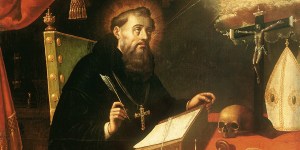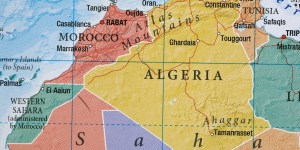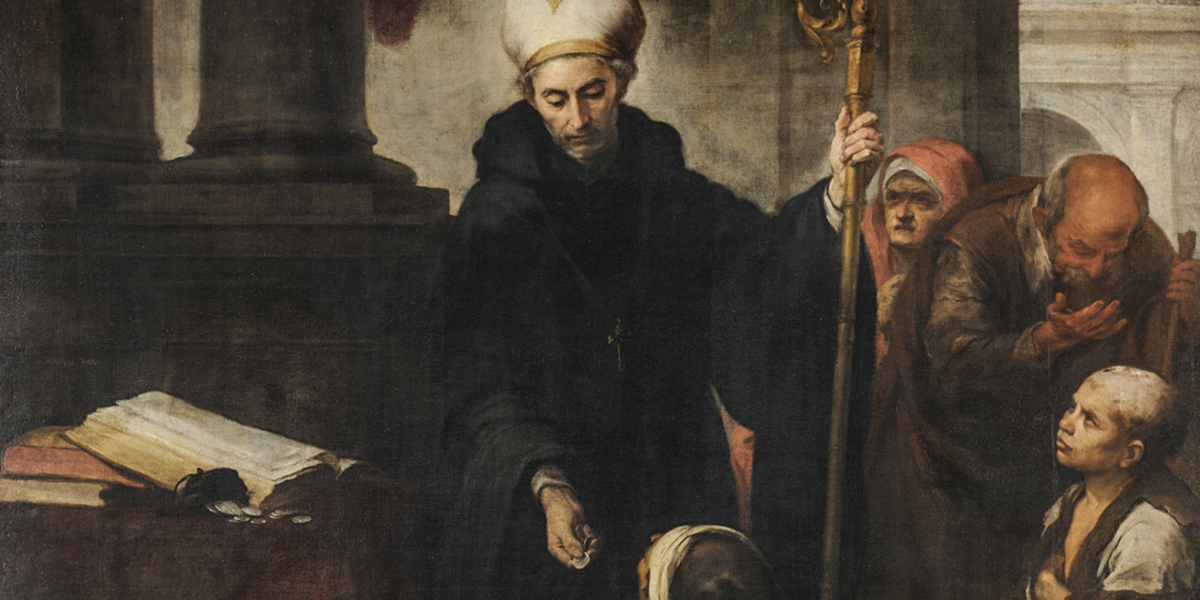Pope Leo has a connection with St. Thomas: This saint gives his name to Villanova University, the Pennsylvania university run by the Order of St. Augustine that Robert Francis Prevost attended in the 1970s. And, the Holy Father has a relic of St. Thomas in his cross, along with four other saints.
Almsgiver of God
Known as the Almsgiver of God, Thomas (1488–1555) embodied a radical simplicity. Though a renowned scholar and Archbishop of Valencia, he lived in patched robes, gave away his episcopal income, and refused to ignore the cries of the poor. He insisted that no one in his city should go to sleep hungry — an ambition he backed with tireless action, personally distributing food and opening shelters.
The process to name him a Doctor of the Church, initiated by the Spanish Bishops’ Conference and supported by the three Augustinian orders, is now formally underway. The Congregation for the Doctrine of the Faith has begun reviewing his complete works to determine whether his theological contributions are “eminent” — a core requirement for the title.
His writings reveal a preacher who combined sharp intellect with spiritual warmth. He spoke boldly against greed and injustice, but always through the lens of divine mercy. In a time of upheaval and growing wealth disparity, his call to live the Gospel through concrete acts of love rings startlingly modern.
“His zeal for evangelization,” notes the official petition, “is not just historical, but deeply relevant.”
Cardinal Antonio Cañizares, former Archbishop of Valencia, believes St. Thomas’ voice resonates especially now. His theology, centered on Christ and the poor, aligns with the pastoral priorities of the Church under Pope Leo XIV.
As Father Miguel Ángel Orcasitas, who leads the cause, puts it: “His doctrine speaks to today’s social wounds. That makes him not just a saint of his time, but of ours.”
Thomas’ life
Born in Fuenllana in 1488 and raised in modest means, Thomas studied at the University of Alcalá and eventually joined the Augustinian Order. He became a brilliant lecturer and university rector before being called — some say reluctantly — to the episcopate. As archbishop, he prioritized reform: cleaning up diocesan finances, revitalizing clergy formation, and establishing institutions for education and healthcare.
Support for his cause to be named a Doctor of the Church extends far beyond Spain. Bishops from Panama have formally endorsed it, and Augustinian communities in Mexico, Peru, Argentina, and the Philippines are actively advocating for his recognition.
There are currently only 37 Doctors of the Church. To join that rare circle, a saint must offer timeless insight that deepens the Church’s understanding of the faith. Thomas of Villanova’s life and teaching seem to meet that measure.
Even if the title is never conferred, his example is enduring. In a fractured world, Thomas reminds us that theology divorced from compassion is empty — and that to love God is to serve the vulnerable, without fanfare or delay.


